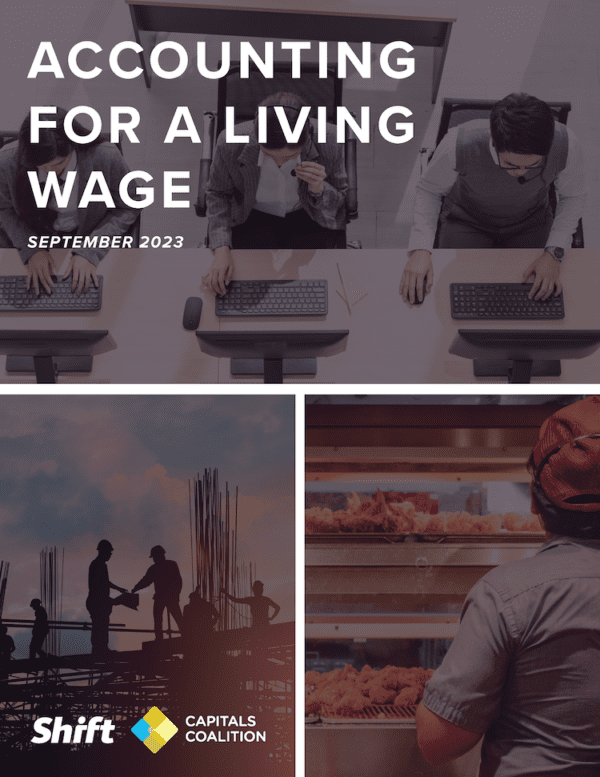Shift’s Guidance on the European Sustainability Reporting Standards
Primers for practitioners
7 resources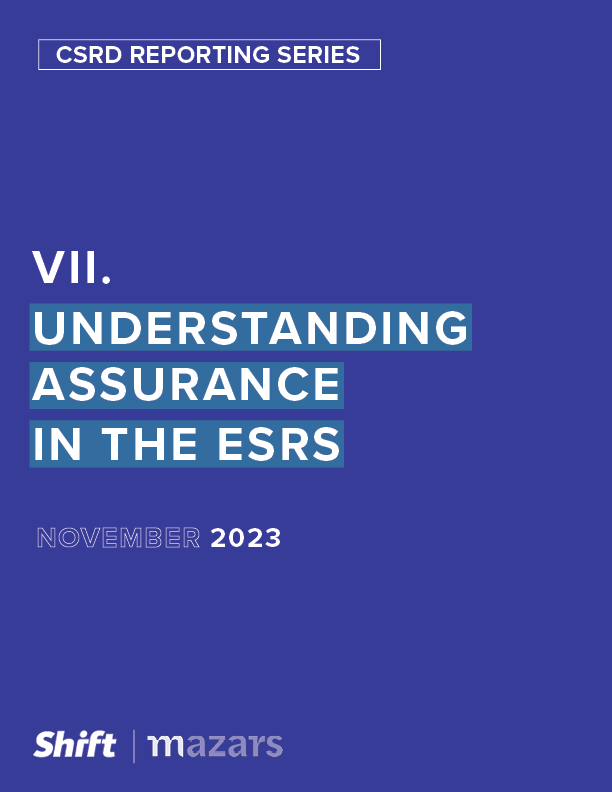
Understanding Assurance in the ESRS
Part 7
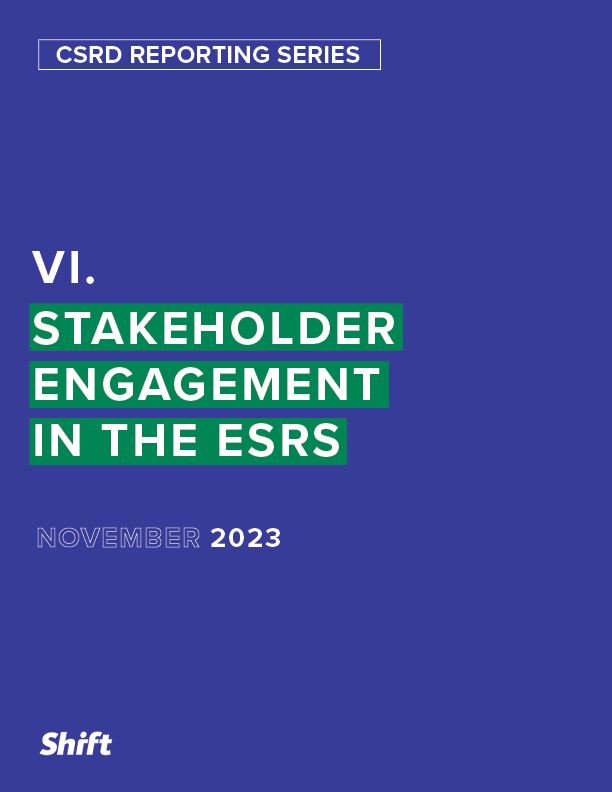
Stakeholder Engagement in the ESRS
Part 6
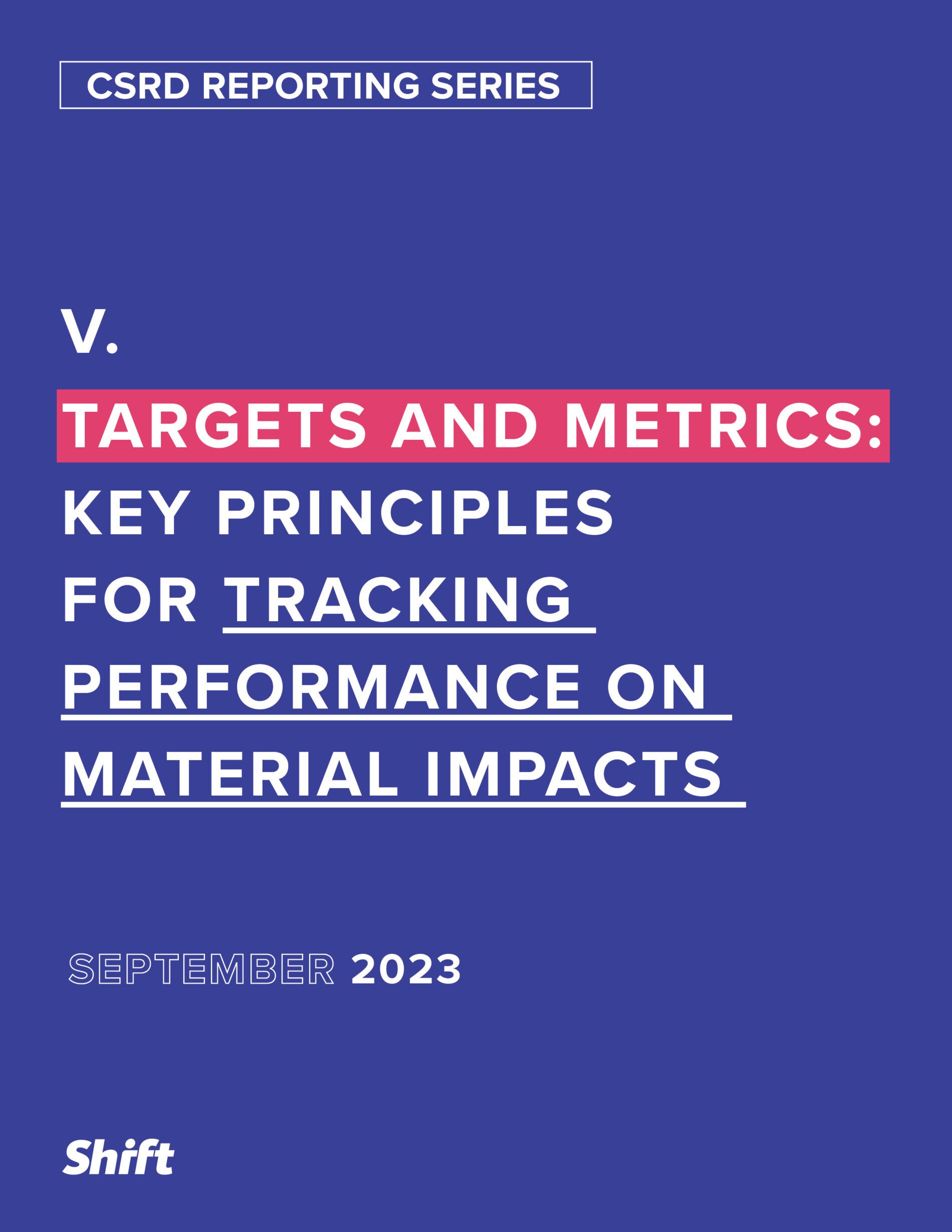
Targets and Metrics: Key Principles for Tracking Performance on Material Impacts
Part 5
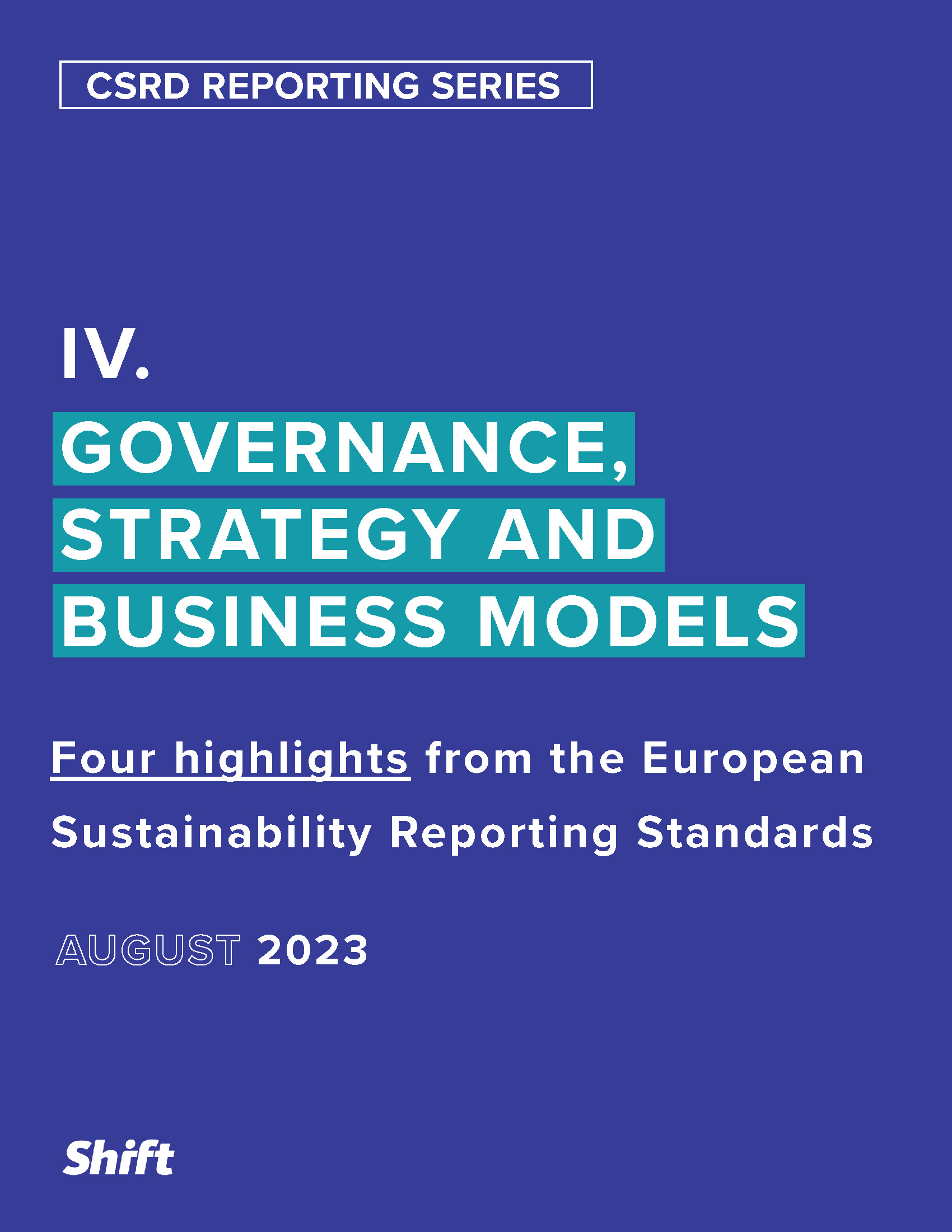
Governance, Strategy and Business Models: four highlights from the European Sustainability Reporting Standards
Part 4
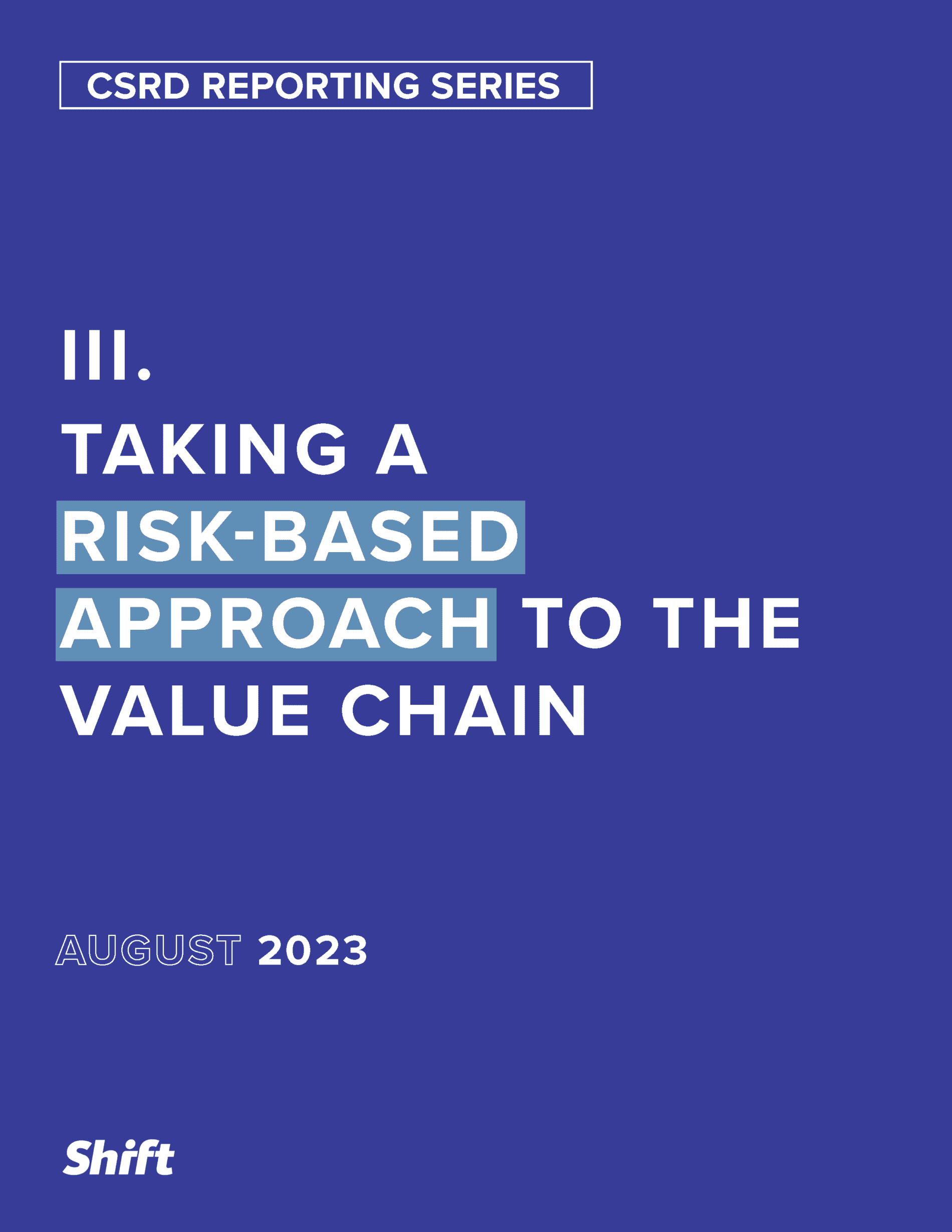
Taking a Risk-Based Approach to the Value Chain
Part 3
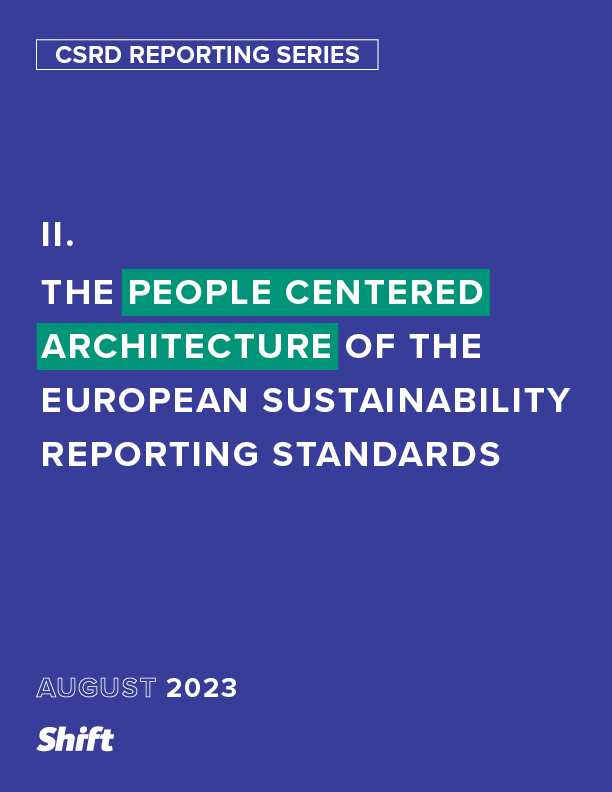
The People Centered Architecture of the European Sustainability Reporting Standards
Part 2
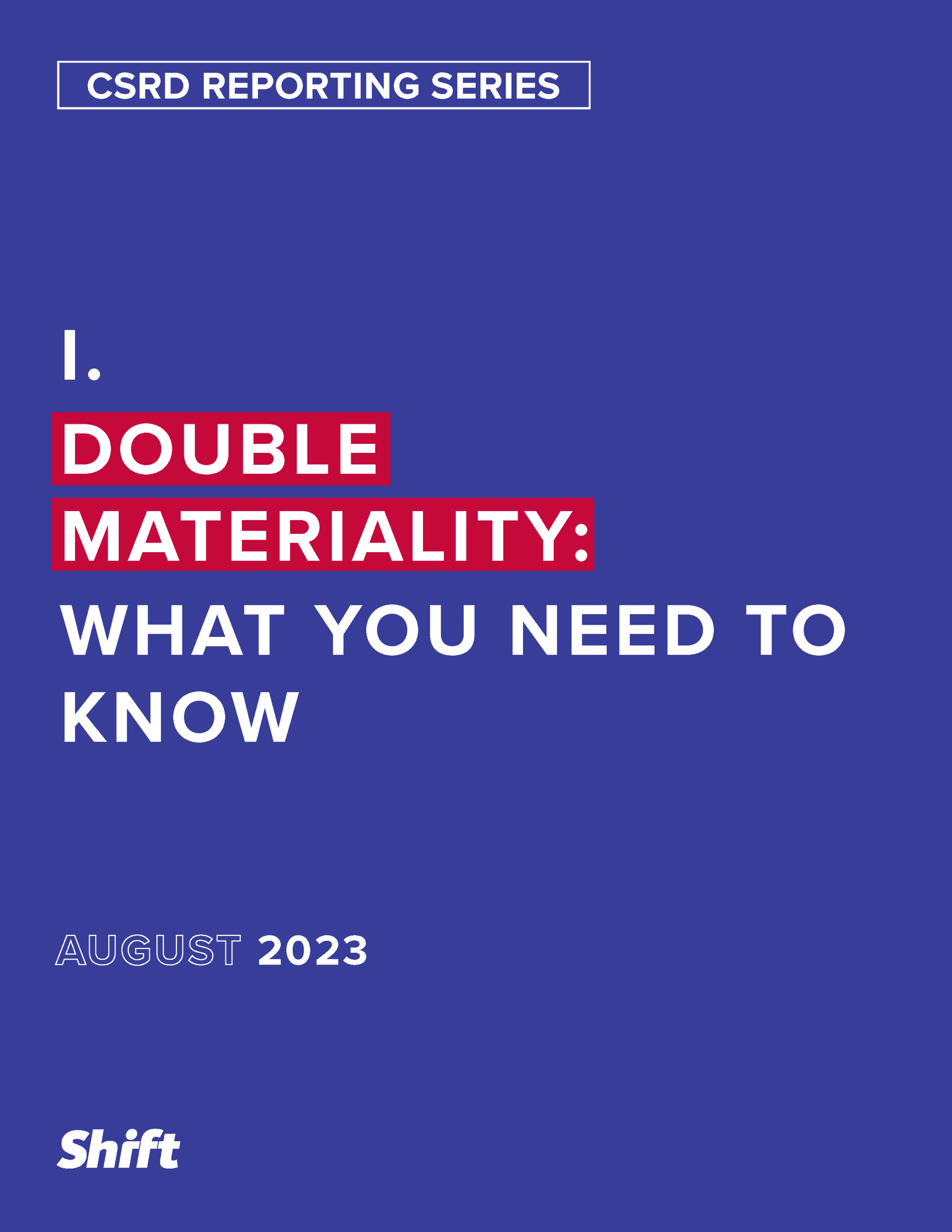
Double Materiality: What you need to know
Part 1
Shift’s series of primers on the European Sustainability Reporting Standards (ESRS) is for everyone and anyone tasked with putting the standards into practice – whether you’re working within a company, or advising one. The Standards are designed to ensure greater rigor, completeness and comparability in companies’ reporting on their sustainability performance across environmental (including climate), social (primarily human rights) and governance issues, in line with the EU’s Corporate Sustainability Reporting Directive (CSRD). We hope this series supports the coherent interpretation and robust implementation of the standards that will unlock high-quality reporting on sustainability.
As a ‘co-construction’ partner in the early development of the ESRS, and with our Director of Business Engagement, David Vermijs, sitting on the Sustainability Reporting Board (EFRAG) that guided the process, we are glad to be able to help demystify the standards for practitioners.
The need for guidance
The ESRS are set to apply to more than 50,000 companies in the EU and at least 10,000 companies outside. To say the advent of the standards has generated a flurry of activity would be an understatement; companies are now bringing together parts of their organizations that rarely met before – finance and internal audit, compliance and legal, environmental teams and human rights specialists. There are questions about who should lead and whether and how these different experts might work together to apply the standards. And many companies are spending significant amounts of money on hiring consultants to guide them through the process.
So it’s understandable that we’re already seeing a proliferation of interpretations of the standards. The ESRS are hardly drafted in the most accessible terms – indeed, it seems to be the fate of many reporting (and other) standards, to be unhelpfully technical and complex in ways that risk undermining their actual intent.
In addition, consultants are often inclined to interpret standards in ways that best suit the methodologies they are used to applying with their clients. Selective interpretations can come into play as part of a desire to fit these advisory engagements into ‘business as usual’. Indeed, there are cases where internal company experts familiar with key aspects of the ESRS have had to correct their consultants on what they know to be faulty advice. But many more companies lack the in-house expertise to tell the difference.
Clarity is greatly needed. The European Financial Reporting Advisory Group (EFRAG), which was responsible for drafting the standards, will be developing some key guidance over the coming weeks and months; Shift team members David Vermijs and Michelle Langlois will be supporting this process, which will hopefully go some way to addressing gaps in understanding and preventing misinterpretation.
In the meantime, we hope this series of primers will help to answer some of the most frequently asked questions we hear on key aspects of the standards, with a particular focus on social issues and their connections with international standards on human rights due diligence. The series will cover: “double materiality” – and the links between impact materiality and “salient human rights issues”; the novel people-centered architecture of the Social standard; the risk-based approach to identifying material impacts in the “value chain”; and much more.
Bridging the gap between action and reporting
Why are we doing this? Because interpretation matters. It is no accident that the ESRS align closely with the UN Guiding Principles on Business and Human Rights and the OECD Guidelines for Multinational Enterprises – the international standards of conduct on corporate respect for human rights. This ensures that reporting requirements tally with international expectations of how companies identify and address risks to people in their operations and value chains.
Too often, that connection between action and reporting on sustainability has been tenuous – whether that’s because non-financial reporting has been seen by companies as a PR side-show; or because the data demanded of companies has failed to either reflect or support good management of sustainability risks and impacts.
Sustainability reporting should be a natural extension of action – to ensure the authenticity of insights provided to shareholders and other stakeholders, and to ensure that the data being gathered is of value for internal managers. It is this relationship that turns the costs of reporting into an investment in effective risk management. If a hundred interpretations of the ESRS now emerge, that prize will be lost.
The coming months and years will be a litmus test for whether the ESRS can re-solidify this relationship between action and reporting on sustainability matters, including on material social issues that have too long been ignored or downplayed. If not, this pioneering European initiative will in good part have failed. Now is the time to make sure that it succeeds. We hope that this series of primers can help you play a part in helping ensure that it does.
